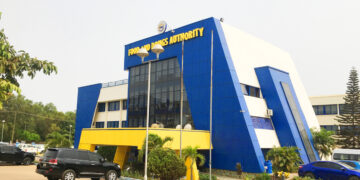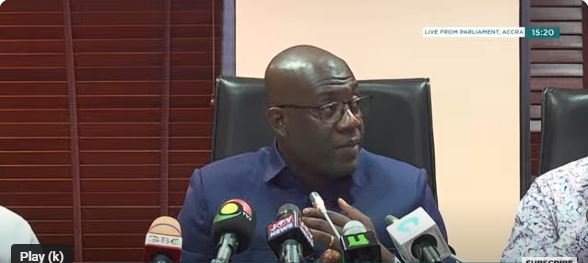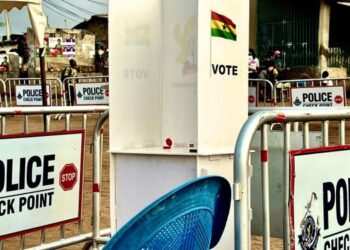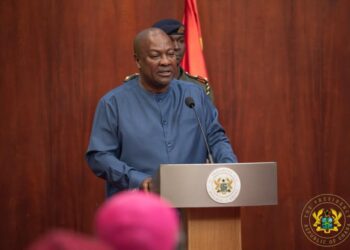The Minority in Parliament has pledged to campaign against the government’s newly introduced GH¢1 Energy Sector Recovery Levy, calling the policy “draconian” and detrimental to struggling Ghanaians.
Speaking at a press conference on Monday, June 9, Minority legislators condemned the levy as ill-timed and poorly implemented, arguing that it will deepen the financial hardships faced by ordinary citizens.
Kojo Oppong Nkrumah, Ranking Member on Parliament’s Economy and Development Committee, criticised the manner in which the Energy Sector Levy (Amendment) Bill, 2025, was rushed through Parliament with minimal public engagement.
“It is already clear that the government intends to go ahead with the implementation of this draconian levy,” the Minority said.
“We want to advertise that we would be embarking on the following: We will continuously engage the people of Ghana, civil society groups, driver unions and the media to showcase the true impact of these draconian taxes and the negative levy that the government is imposing on us.”
“We would continue to stand with groups of honest Ghanaians, the driver unions, the Chamber of Oil Marketers who are opposing the levy or asking government to pull back and to engage better—not to go by this midnight introduction into Parliament and using their numbers to push it through.”
“We know the government has a lot of goodwill, but this is not the way to do things. We will continue to stand in solidarity with the Chamber of Oil Marketing Companies in their position that this downstream sector is already heavily over-taxed. If you add this new levy, effectively about 26% of what you are paying at the pump is all taxes.”
The new legislation, passed on June 3 and assented to by President John Dramani Mahama two days later, adds GH¢1 per litre to petroleum products.
The government defends the move as a necessary step to raise an estimated GH¢5.7 billion to address mounting energy sector debts, which now stand at \$3.1 billion.
An additional $1.2 billion is also needed to fund fuel procurement for thermal power in 2025.
Despite the justification, the Minority and several stakeholders—including driver unions and the Chamber of Oil Marketing Companies—have voiced firm opposition.
They warn that the added cost will raise the tax component on fuel to around 26%, exacerbating inflation and further straining household budgets.
To counter the levy’s implementation, the Minority announced a planned public awareness campaign targeting transport unions, civil society organisations, and the media.
Their goal, they said, is to build public pressure for a reversal or reassessment of the tax policy.
In response to public outcry and stakeholder concerns, the government has delayed the levy’s implementation date from June 9 to June 16, 2025, to allow for further dialogue.
However, the Minority maintains that postponement is not enough, insisting that the levy must be scrapped entirely in favour of more equitable and transparent solutions to Ghana’s energy challenges.




































